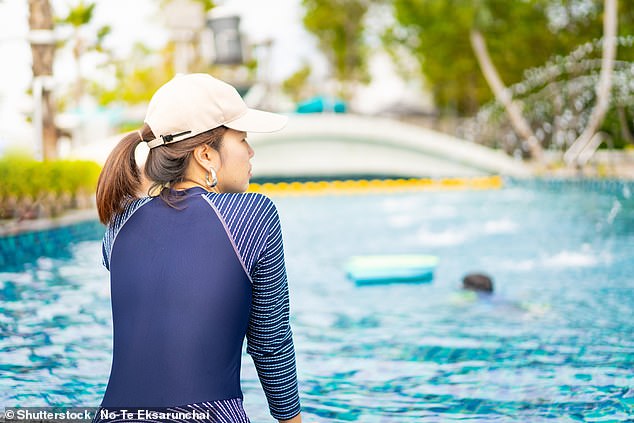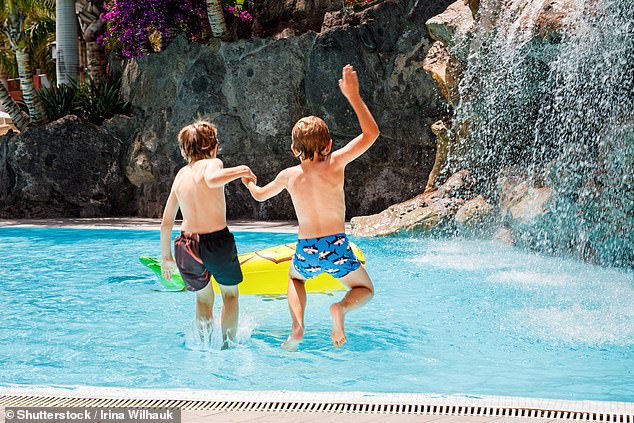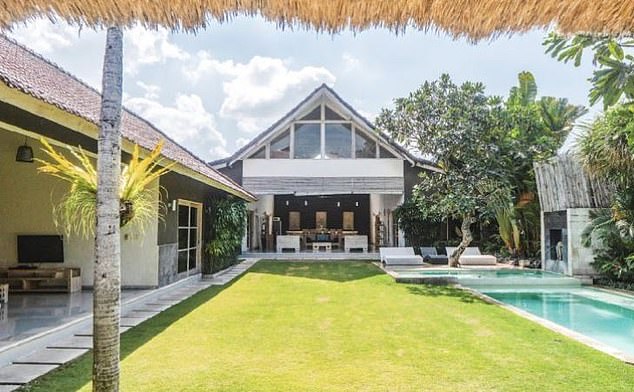The death of an Australian baby in Bali has left many parents wondering what they can do to protect their children while on holiday in countries with relaxed pool laws.
Khyden James, 14 months, tragically drowned in the unfenced pool at Villa Besar in Kerobokan, north of Kuta, on October 19.
His family had returned to the villa from a water park just five minutes before the alarm was raised that a baby was drowning in the pool at 7.20pm.
Unlike Australia, pool fencing is not a legal requirement in Indonesia, but can usually be rented on site.
Royal Life Saving Australia chief executive Justin Scarr told Daily Mail Australia that at one point British children were more likely to drown abroad than in the UK.
Australians have also been spoiled by strict water and pool safety regulations, so drowning isn’t always on the minds of traveling parents.
“We are very privileged and fortunate to have very strict pool fencing regulations in Australia and that protects our children,” Mr Scarr said.
“The drowning rate of Australian children has reduced substantially in the last 30 years since those laws were enacted, but those laws are not enforced in many overseas countries, including Indonesia.
“The explosion of villa-style holiday properties means parents really need to focus on their young children’s vulnerabilities in those pools.”
Khyden James, 14 months, tragically drowned in the unfenced swimming pool at Villa Besar (pictured) in Kerobokan, north of Kuta, on October 19.

Royal Life Saving Australia CEO Justin Scarr explained that many countries do not have the same strict pool safety laws as Australia, requiring parents to be more active in supervising their children.
The first thing Scarr urged parents traveling abroad to consider was the age of their child and whether their accommodation is appropriate for their little one’s safety.
‘Vulnerability changes with the age of the child. t“The highest rates of drowning in Australia are actually among one-year-olds,” he said.
‘When parents of children aged one or two book one of these holiday villas, they really need to understand that there is a significant risk of their child drowning.
‘No fencing means constant adult supervision.
“If you’re a parent of a very young child, a crawler, an early walker, then those villages are very, very dangerous and you should be watching them like a hawk.”
However, increased supervision does not apply only to very young children.
“I encourage people to reconsider staying in a villa if they have very young children,” Mr Scarr said.
‘If children are older, such as preschoolers who know how to swim, parents still need to constantly monitor them.
“They should also be aware of loud play in the pool, which also carries a higher risk of drowning.”
Scarr also urged parents to consider brushing up on their own and their children’s water safety skills.
“There are some really fantastic resources on the Royal Life Saving website about basic water safety involving children, so it’s a good idea to review them,” he said.
‘We would encourage people to take their children to a swimming class to brush up on their skills through structured training.
“A couple of weeks abroad by a resort pool is a great way to boost their confidence and swimming skills, but you really need to assess their skills before you go.”
However, one of the most important pieces of advice Mr. Scarr had to offer was that parents should focus on first aid knowledge as part of their holiday preparation.

Scarr recommended parents with very young children avoid accommodations without pool fences
“Obviously, it’s a good idea for people to carry a first aid kit while traveling and brush up on their CPR skills,” he said.
“Very often in these resorts and remote places, if you’re called to do CPR in an emergency, it saves lives.
‘You could also find yourself alone without quick emergency assistance and we know When it comes to resuscitating drowning children, early resuscitation is absolutely critical.’
A number of information packs, including resources for pool and waterway safety, are available on the Royal Life Saving Australia website.

